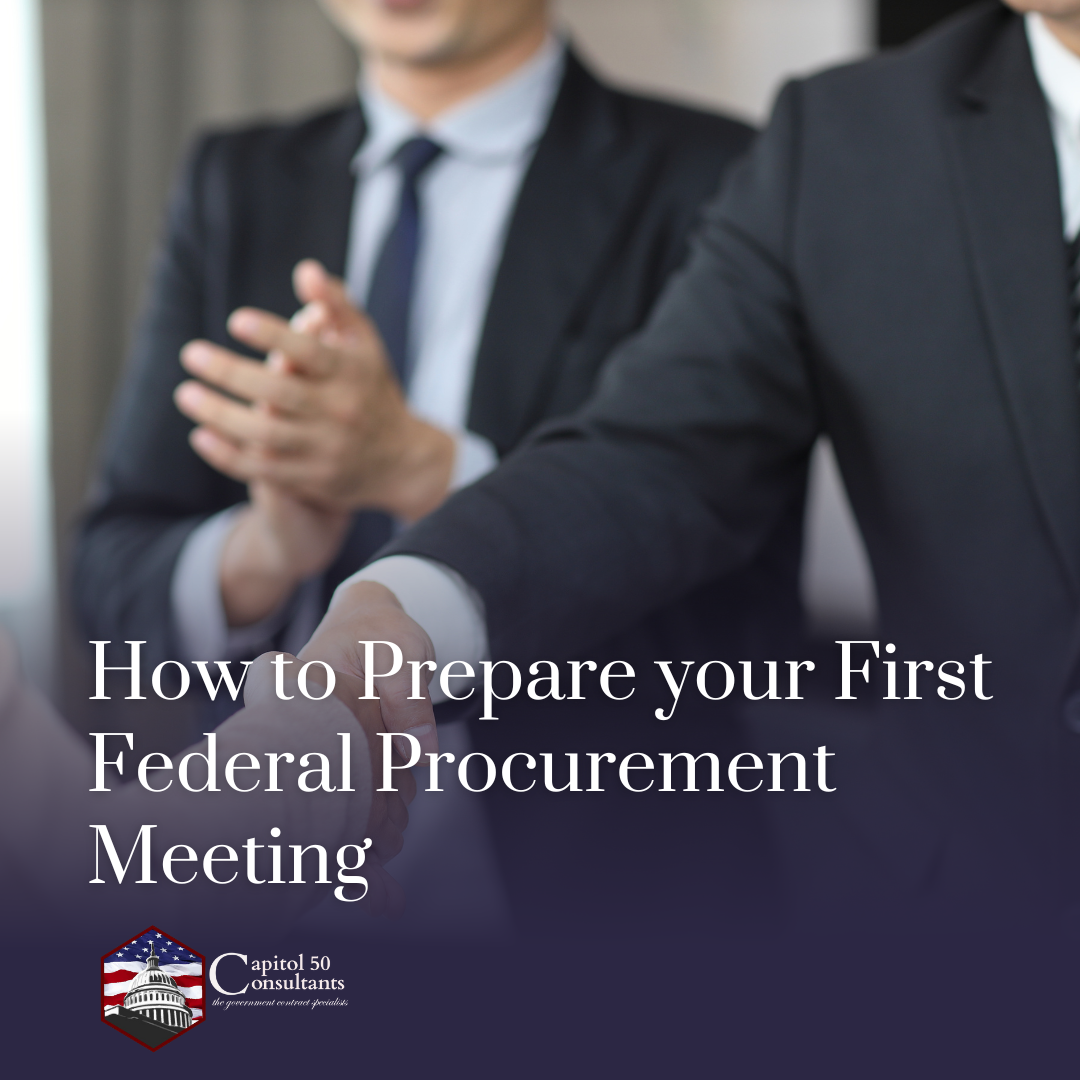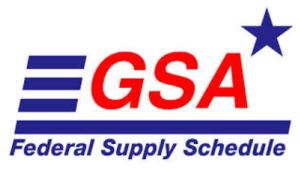Introduction
Securing a federal government contract is a game-changer for businesses, offering substantial revenue opportunities and long-term stability. However, the process to win such contracts begins with a critical step—your federal procurement meeting.
Capitol 50 Consultants Inc., a leader in government contracting consultation, specializes in guiding businesses through the complexities of federal procurement. In this guide, we’ll provide actionable strategies to prepare for your first federal procurement meeting, highlight the latest regulations, and demonstrate the value of partnering with experts like Capitol 50 Consultants to secure your place in the government contracting ecosystem.
Understanding Federal Procurement and Its Challenges
What is Federal Procurement?
Federal procurement refers to the process through which government agencies acquire goods and services. It encompasses various procedures, each designed to ensure transparency, value, and fairness in spending taxpayer dollars. For businesses, this represents a lucrative and stable revenue source, as the federal government is one of the largest buyers globally.
Key Challenges in Federal Procurement
Engaging in federal procurement involves unique challenges, including:
- Regulatory Compliance: Adhering to Federal Acquisition Regulations (FAR) and agency-specific rules.
- Intense Competition: Competing against seasoned contractors with established track records.
- Bureaucratic Processes: Navigating documentation, approvals, and strict deadlines.
Capitol 50 Consultants’ Role
Capitol 50 Consultants Inc. simplifies these challenges by offering expert guidance. From understanding agency needs to ensuring compliance, our team helps businesses position themselves effectively in the procurement process.
Preparing for the First Meeting: A Step-by-Step Guide
Researching the Agency and Opportunity
Preparation begins with understanding the agency’s mission and procurement goals. Analyze past contract awards, identify decision-makers, and study procurement preferences. Tools like USAspending.gov and agency procurement forecasts are invaluable resources.
Building a Winning Capability Statement
Your capability statement is your business’s resume for federal procurement. Include:
- Core competencies.
- Past performance highlights.
- Key differentiators.
- Contact information and certifications. Ensure the document is tailored to the agency’s specific needs and objectives.
Knowing the Federal Acquisition Regulations (FAR)
FAR governs federal procurement activities. While the regulations are extensive, focus on clauses directly relevant to your industry and the contract in question. Understanding FAR demonstrates your compliance readiness.
Crafting a Solid Presentation for the Meeting
Highlighting Your Unique Value Proposition (UVP)
Agencies value businesses that can solve their problems effectively. Clearly articulate how your solutions align with their mission while offering cost-effective and innovative advantages over competitors.
Demonstrating Compliance and Readiness
Federal agencies seek contractors that understand and adhere to regulations. Highlight certifications, past compliance records, and your ability to meet contract requirements seamlessly.
Preparing for Common Questions and Concerns
Be ready to address:
- Pricing strategies.
- Delivery timelines and capacity.
- Past performance on similar contracts. Practicing responses to these questions will ensure confidence and professionalism during the meeting.
Maximizing Meeting Success with Expert Assistance
How Capitol 50 Consultants Simplify the Process
Capitol 50 Consultants offers end-to-end support, including:
- GSA Schedule acquisition.
- Strategy consulting tailored to your business goals.
- Comprehensive compliance reviews. Our experts provide actionable insights and proven strategies that align with the latest federal contracting trends.
The Advantage of GSA Schedules
Holding a GSA Schedule significantly enhances your credibility with government buyers. It streamlines the procurement process and makes your business a preferred choice for federal contracts.
Post-Meeting Strategies for Long-Term Success
Following Up Effectively
A timely and professional follow-up can set you apart. Send a concise thank-you email summarizing key discussion points and reiterating your value proposition.
Building and Maintaining Relationships with Agencies
Procurement success often hinges on strong relationships. Attend industry events, respond promptly to requests, and deliver exceptional service to build trust.
Ongoing Compliance and Performance
Meeting contractual obligations and maintaining compliance solidifies your reputation. Proactive communication with agency representatives ensures long-term partnerships.
Conclusion
Securing a government contract starts with mastering your first federal procurement meeting. By understanding the process, preparing thoroughly, and partnering with experts like Capitol 50 Consultants Inc., you position your business for long-term success in the lucrative world of government contracting.
Capitol 50’s unmatched expertise in GSA Schedule acquisition and federal procurement strategy can simplify the journey and maximize your chances of success. Contact us today to turn your federal contracting aspirations into reality.
FAQs
- What is a GSA Schedule, and why is it important? A GSA Schedule is a long-term government contract that simplifies the purchasing process for federal agencies. It boosts your credibility and marketability.
- How can Capitol 50 Consultants help small businesses with federal procurement? Capitol 50 provides expert guidance in compliance, strategy, and GSA Schedule acquisition, enabling small businesses to compete effectively.
- What should be included in a capability statement? Core competencies, past performance, certifications, and contact information tailored to agency needs.
- How do I prepare for common questions in a procurement meeting? Research agency requirements and practice addressing pricing, delivery, and past performance confidently.
- What follow-up steps should I take after a federal procurement meeting? Send a thank-you email, summarize key points discussed, and maintain professional communication to nurture the relationship.




